High Protein Foods to Work into Your Diet
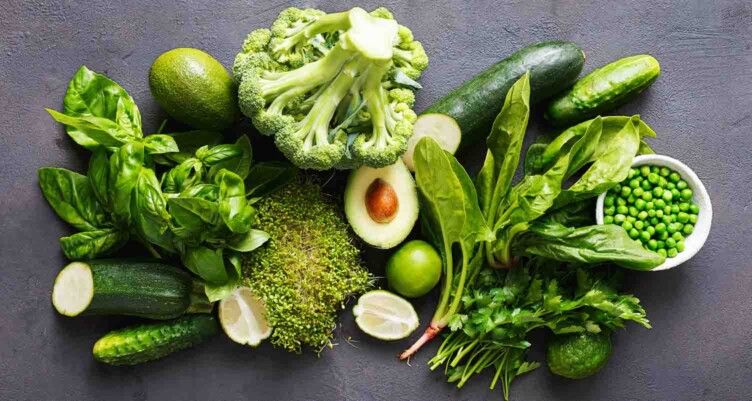
- Protein is a macronutrient that your body needs to grow and repair cells.
- To meet your daily protein needs, consider adding healthy sources of dairy, meat, fish and plant-based foods to your meals.
- Protein supplements offer a convenient way to get enough protein and support your body.
You can’t get far in learning about nutrition without first talking about protein. Protein is one of three essential macronutrients aka macros (the other two are carbohydrates and fats). The building blocks of protein are amino acids. Getting enough high protein foods in your diet is essential for repairing and building the body’s tissue. Protein provides structure to various parts of the body and has the added benefit of keeping you satiated between meals.[1]
The ideal daily protein intake for the average person is 50 grams, according to the Food and Drug Administration.[2] However, this number can vary based on your sex and activity level. Also keep in mind that not all protein sources are alike. They can differ in terms of added ingredients and hormones, farming practices and food processing, so it’s important to be conscientious about what’s on your plate.
For the ultimate guide on what to stock in your kitchen, here are the top protein foods to work into your diet.
Meat
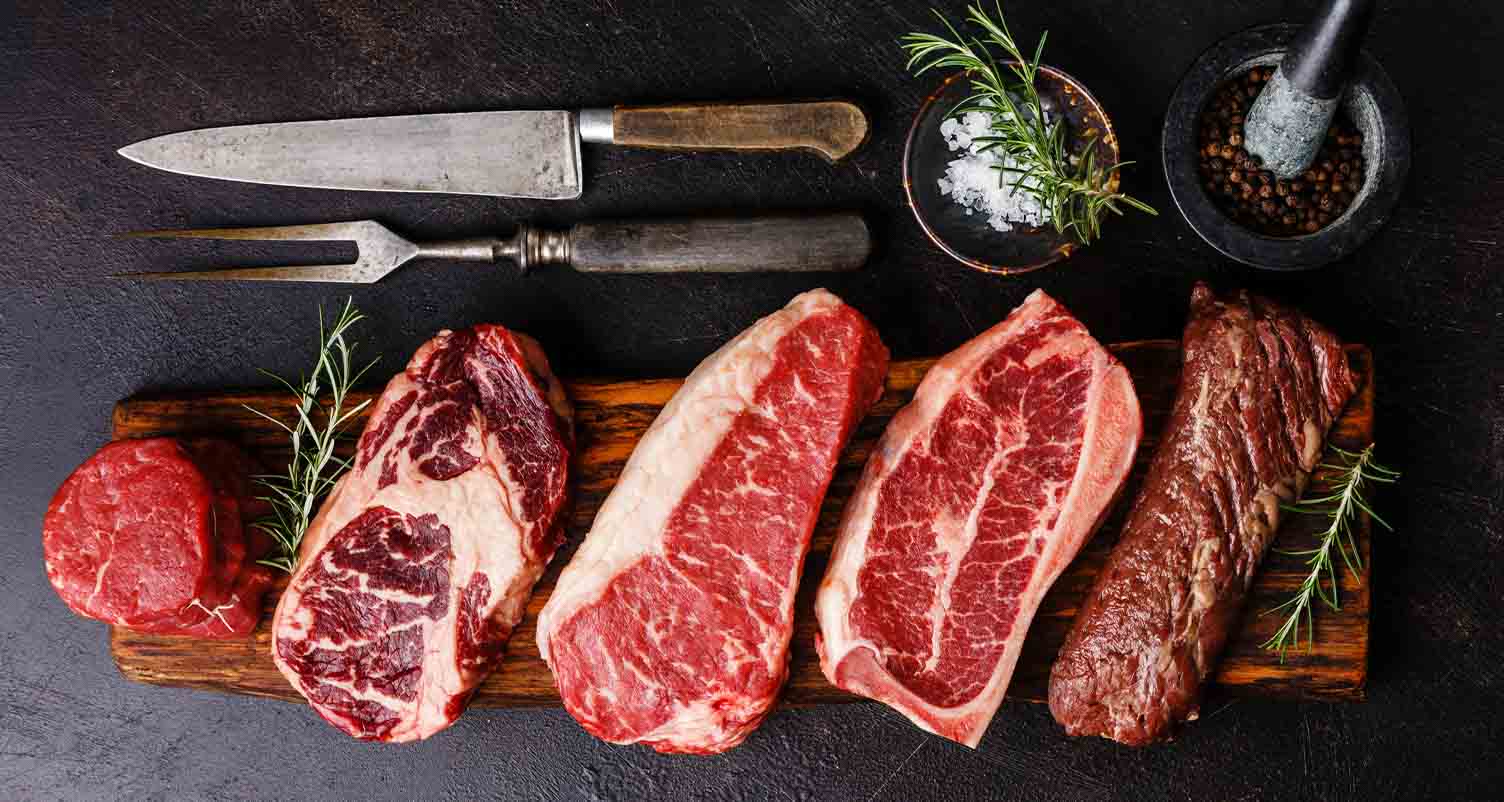
Unless you’re a vegan or vegetarian, meat is a staple part of any diet (including keto, Mediterranean, paleo and Whole30). We recommend grass-fed beef, for reasons that go beyond ethics and sustainability.
Like the name implies, grass-fed beef comes from cattle that were raised on grass pastures. Pound for pound, grass-fed beef nutritionally outranks grain-fed beef in several areas, such as being lower in fat and lower in calories. It’s also higher in omega-3 fatty acids, which are known as “good fats” for heart and brain health due to their soothing properties.[3]
Craving lamb? Try grass-fed lamb, which is high in omega-3 fatty acids, rich in vitamins and minerals and a heart-healthy source of protein. It also contains something that other red meats don’t: The highest amount of conjugated linoleic acid (CLA). CLA is a natural type of trans fat that can support a healthy weight.[4]
Pastured pork is another delicious source of protein. Pasture-raised products come from animals that are either raised or spent a large part of their lives on a pasture instead of indoor confinement. As a result, these animals contain more nutrients than commercially-raised animals. For example, meat from a pasture-raised pig contains double the amount of vitamin E—an important vitamin for immune support—than meat from confined pigs.[5]
Pastured duck and goose are also high in protein. Goose meat boasts 22.8 grams of protein per 100 grams, while duck meat has three times the vitamin B1 and two times the vitamin K than chicken.[6]
Fish
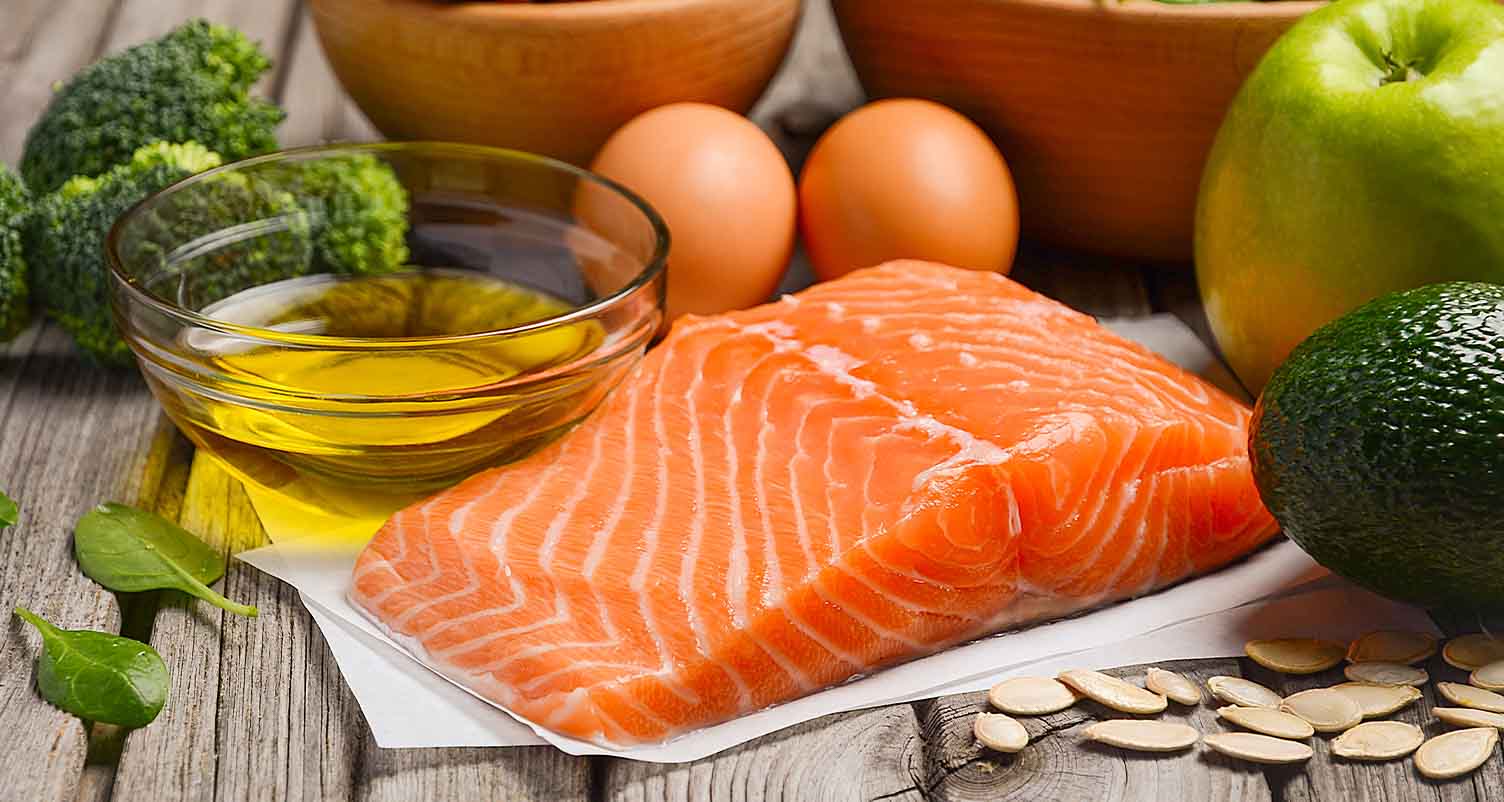
There are plenty of fish in the sea and most, if not all, contain a good amount of protein, heart-healthy omega-3 fats and other nutrients, such as iodine, selenium, vitamin D and more.[7]
Regularly eating fish is also associated with a lower risk for heart disease. A meta-analysis of 20 studies and thousands of participants found that eating one to two servings of fatty fish per week reduces a person’s risk of dying from heart disease by 36 percent.[8]
But certain fishes have high levels of mercury, which may have toxic effects on the body. To avoid this, choose fish that are low in mercury. Some healthy choices include:
- Haddock
- Summer flounder
- Trout
- Salmon (including sockeye)
- Sole
- Shrimp
- Skipjack Tuna
- Pollock
- Anchovies
And sardines may sound like they would taste and smell fishy, but they’re a delicious, easy-to-access option. And with 36.7 grams of protein in one cup of canned sardines in oil, this fish is small-but-mighty protein source.[9]
Dairy
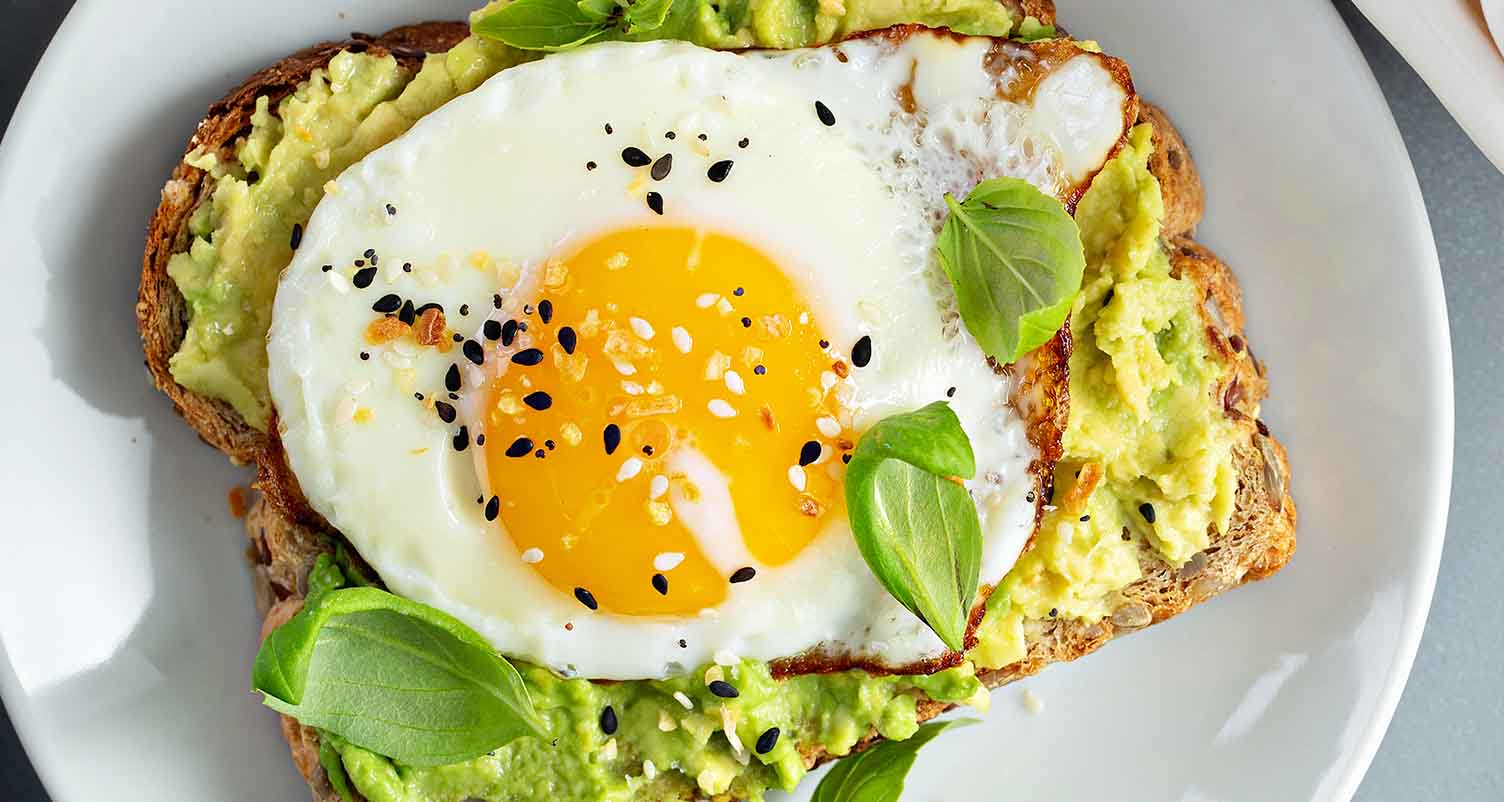
Whether it’s breakfast, lunch, dinner or a snack, eggs have a place at every meal. Eggs are not only a versatile food (they can make sweet or savory creations), but they’re high in protein (one large egg, about 50 grams, contains 6.28 grams of protein).[10]
Eggs are a complete source of protein, which means that they contain all nine essential amino acids for your body to function at its best. Pastured eggs are the ideal choice since it means that the chickens are able to roam free where they are raised and they eat a diet of their natural food. As a result, they are higher in vitamins (A and E) and lower in cholesterol and saturated fat.[11]
Next up in the world of protein-rich dairy is full-fat yogurt. Fat has gotten a bad rep over the decades, but it can be healthier than you’d think. Full-fat yogurt contains more protein than low-fat yogurt, so you can eat less of it and get fuller faster. And secondly, evidence has found that full-fat yogurt has a protective effect that reduces your risk of heart disease and diabetes.[12]
Grass-fed whey protein is a top high-protein food to work into your diet. Grass-fed whey comes from cows that ate a more natural diet of grass and plants. As a result, the product contains high levels of conjugated linoleic acid (CLA).
Plant-Based Protein
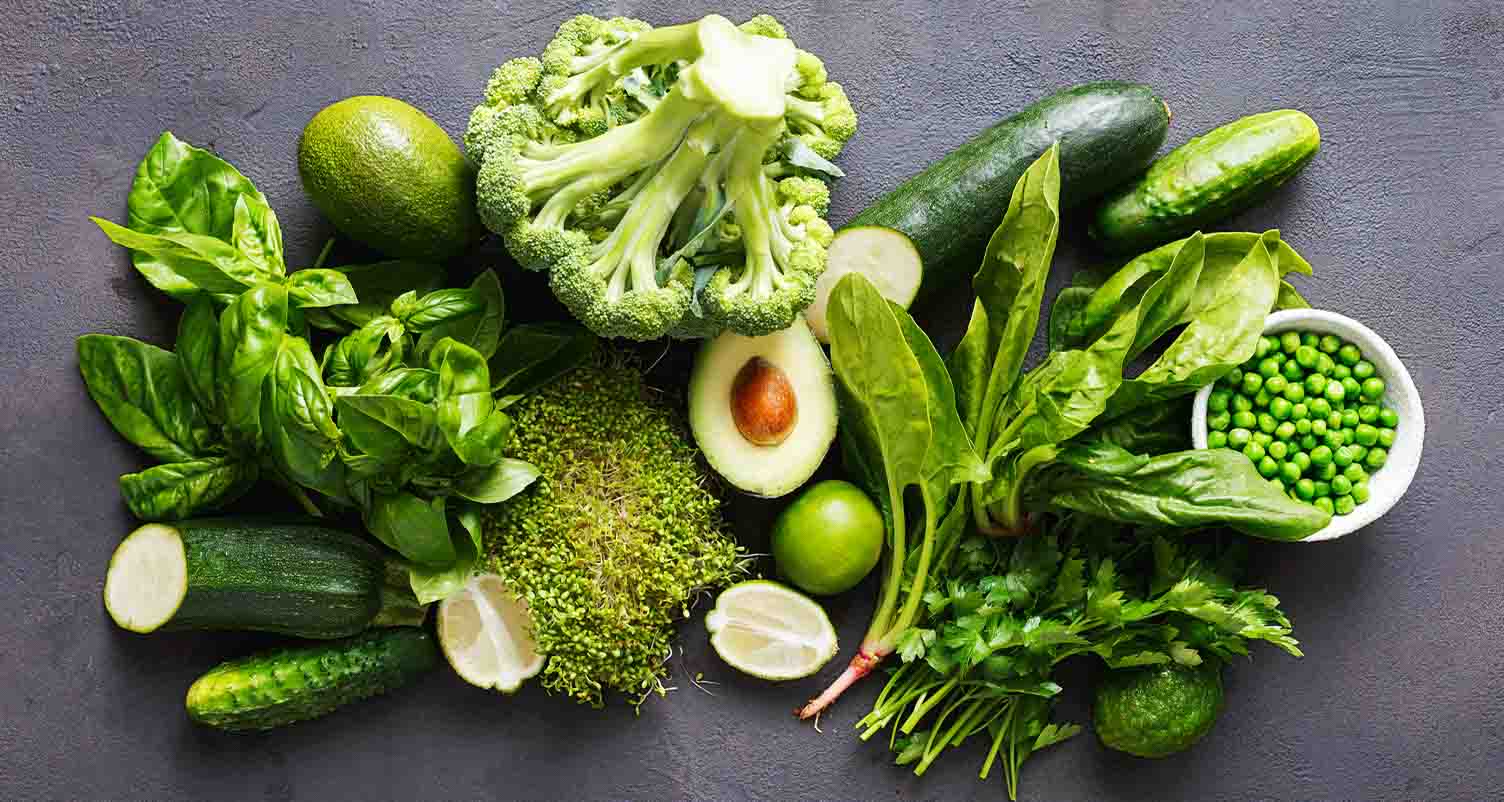
Who says you have to eat meat to get enough protein into your diet? The wild and wonderful world of plant-based foods is as vast as it is delicious. Cruciferous vegetables (broccoli, cauliflower and collard greens) have an impressive nutritional profile. They are high in antioxidants and reduce the risk of several health concerns.[13]
Cruciferous vegetables are also high in protein. A one-cup serving of raw collard greens contains 5 grams of protein, so feel free to add it to your morning smoothie or cook with it.[14] Asparagus and Brussels sprouts are other high-protein options. Both are low in calories (only 40 calories one cup of asparagus and 56 in Brussels spouts) and high in protein (asparagus contains 4.3 g and in Brussels sprouts 4g.)[15][16]
You’ll go nuts over this next option: raw pistachios. Like eggs, they are considered a complete protein source. These flavorful nuts are high in fiber, loaded with vitamins and contain healthy fat to support overall health.[17] Add them to a recipe or use them as a healthier alternative to your favorite salty and crunchy snacks.
Pea protein is an excellent choice for those seeking a plant-based protein source. Additionally, pea protein is easy to digest and free from allergens like peanuts, gluten and lactose.
Protein Supplements
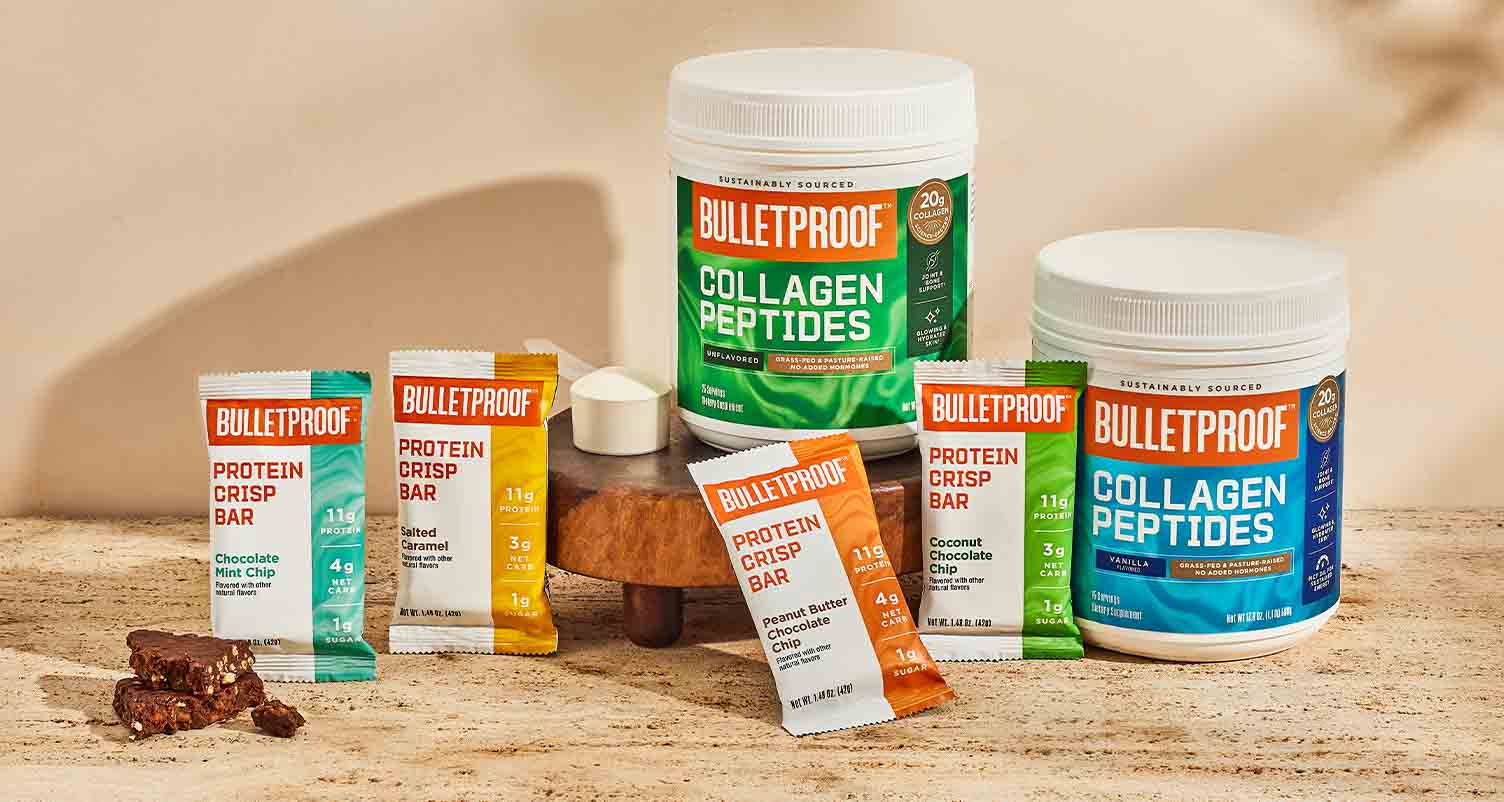
When you don’t have time for a sit-down meal, protein supplements (bars, powders, capsules) do the trick. In addition to being tasty and convenient, research has found that protein supplements can improve satiety, muscle recovery and energy.
One study found that protein supplements can decrease recovery time after a workout and reduce muscle soreness, muscle recovery time and a decline in overall power.[18]
Bulletproof has a variety of protein bars and collagen protein powders, starting with our Collagen Peptides. Collagen is the body’s most abundant protein, known for giving the body structure.
Our Collagen Peptides come in a variety of delicious flavors and contain 20 grams of collagen per serving. Mix it into a juice or smoothie or make one of these high-protein desserts.
You can also set yourself up for success with Energy Collagen Protein. We add the essential amino acid, L-Tryptophan, to ensure this supplement provides a complete protein. This differentiates this product from the majority of collagen on the market.
When you want to take a bite out of your protein instead, reach for a Bulletproof Protein Crisp Bar. We use plant-based and easy-to-digest pea protein. These bars are keto-friendly with a healthy dose of fiber and MCT oil added for satiety and sustained energy.
High Protein Foods to Avoid
In your quest to find the top high protein foods to work into your diet, you’ll quickly learn that not all protein foods are alike. Some may actually do more harm than good, so knowing which foods to avoid is key. Some high protein foods to avoid for optimal health include:
Soy
While commonly revered as a health food by some, evidence suggests otherwise. Studies have found that anti-nutrients in soy may have negative effects on gut bacteria.[19] Additionally, people with thyroid conditions, such as hypothyroidism, may want to steer clear of soy due to it preventing adequate absorption of thyroid medication.[20]
Wheat Protein
Also called “wheat gluten,” these are the water-insoluble proteins—gliadin and glutenin—that are found in flour. When you mix flour with water to make dough, wheat gluten causes the stickiness and elasticity.[21] Examples include noodles, pasta and bakery products.
Additional high-protein foods to avoid include:
- High-mercury seafood
- Factory-farmed meat
- Low-fat dairy
When possible, also avoid burnt, blackened, charred, deep fried or microwaved food. Humans may be drawn to charred foods, like grilled meats, but charring food muses the formation of hormonally active agents (HAAs). When it’s metabolized by enzymes in the body, DNA damage may cause cancer.[22]
While deep-fried foods undoubtedly taste delicious and microwaved foods offer busy families convenience, they are often higher in inflammatory fats and low in the essential nutrients your body needs.
Sign up for early access to sales, product launches, the latest Bulletproof news and more!



